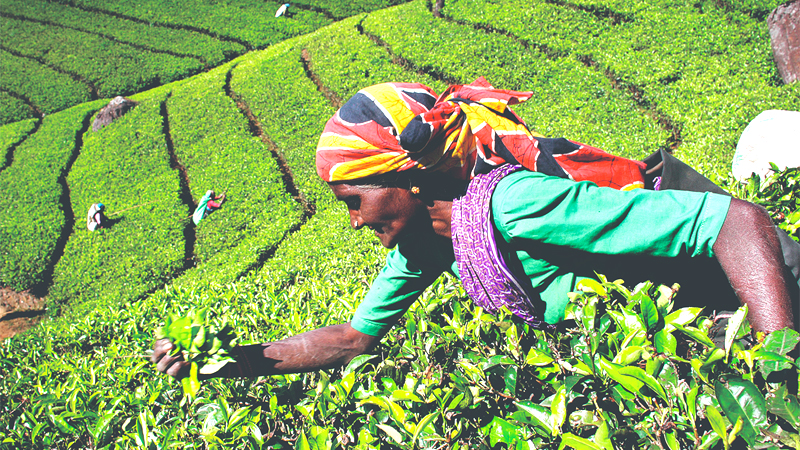With the first wave of the pandemic, the vulnerabilities of the tea sector were exposed. Now, Sri Lanka and most of the main tea buyers are experiencing a second wave which can have far reaching negative consequences than previously anticipated said a survey done by Research Assistant at IPS.
By the time COVID-19 hit, Sri Lanka’s tea production and export earnings had already been on a declining trend over the past few years. The adverse weather conditions and long-term structural issues such as labour shortages and lack of technological application have affected production levels over time.
The tea supply chain comprises of diverse elements, including producers, processors, distributors, importers, national and international logistics systems and exporters who cater to both the domestic and international markets.
Any disruptions to any of these elements will likely affect the tea industry According to the Food and Agriculture Organization (FAO), the supplies of labour-intensive agricultural products in low-income countries are more prone to be badly affected due to COVID-19. Sri Lankan tea too showed a significant decrease in tea production during first and second quarters of 2020 compared to the same quarters over the past few years.
There has been a reduction in the volume of shipping as a result of shrinking global trade due to the drop in demand resulting from COVID-19 and the drop in oil prices in 2020.
However, a significant drop in production and exports from its main competitors due to COVID-19 has enabled ‘Ceylon tea’ to attract a higher price within a short period.
A depreciating rupee also gave tea exports a price advantage. These are, however, short-run benefits, and will dissipate as Sri Lanka’s key competitors return to normal levels of production.
From the demand side, international price fluctuations, changes in purchasing power and consumer preferences could affect the tea sector. However, by September 2020, the situation changed and there was an increase in demand.
Furthermore, Sri Lanka’s tea trade is in a disadvantageous position since its exports are primarily in the black tea segment, which is likely to see a further drop.
Several initiatives have been adopted by the government to minimise the negative impacts of COVID-19 on the tea supply chain including permitting work on tea estates and moving the Colombo Tea Auction to an online platform.
However, the present situation of the tea industry demands that Sri Lanka reassesses its sectorial policies to increase the sector’s long-term resilience.
The IPS report compiled by IPS Analyst Nimesha Dissanayaka says that more attention must be paid to value addition including moving towards herbal and health-based products. This will require a comprehensive reassessment of the long-term prospects for Sri Lanka’s tea industry.
Introducing modern production technologies, enhancing technical skills and fostering innovation, together with improvements in warehousing and packaging facilities and quality assurance throughout the value chain are critical areas to be addressed.
COVID-19 should be viewed as a wake-up call and an opportunity for all stakeholders to collectively drive growth in the tea industry.


